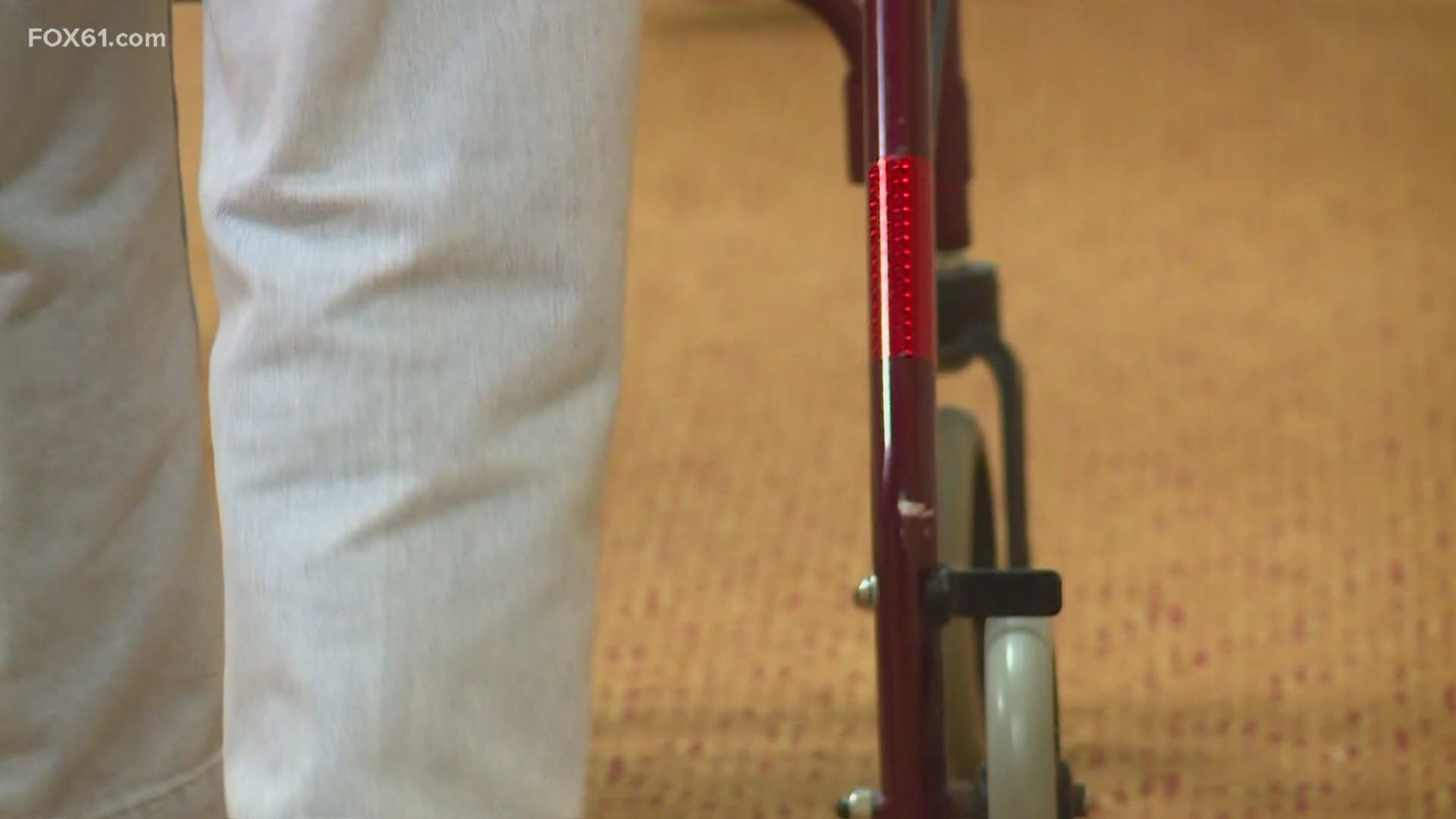HARTFORD, Conn — Good news in the battle against COVID. For the second straight week, the infections in the nursing homes have substantially decreased. Now, families are wondering when they’ll be able to hug their loved ones again.
And while it’s the second straight week nursing homes infections have improved it’s also the first week infections in the assisted living facilities have gotten better.
In the battle of a lifetime, Connecticut’s long-term care industry can finally not just hope for but see — the light at the end of the tunnel. So, when will visitation restrictions be loosened? "As soon as we can, we will start to ease those restrictions," said Deidre Gifford, the interim Commissioner of the state Department of Public Health. "We need a little bit more data."
But families say that's not good enough. Liz Stern of Stonington is an advocate for nursing home residents. She said, "We’re isolating families to protect staff who are reluctant to be vaccinated." Only 40-50% of nursing home staff elected to take the vaccine the first time around. Connecticut Chief Operating Officer Josh Geballe said, "We’ve been doing a lot of education and outreach. What we’ve been hearing is that CVS and Walgreens come around for the 2nd clinics they’ve been seeing some of the people who passed on the first clinic agreeing to get their dose."
But advocates claim the state has all the data they need to ease the loneliness now. Last week, FOX61 was the first to report the good news that due to vaccines, resident infections in the nursing homes dropped 35% compared to the previous week. This week they’ve dropped another 24%. Infections among staff also down another 24%. And for the first week, assisted living facilities are seeing the vaccines kick in too. Resident infection there down 18% and 38% for staff.
One proposal being pushed is to allow each resident to have an essential caregiver designated. "It is a person designated by the resident, most often a family member who would have elevated visitor status if you will that would allow them entry into the building," said Matt Barrett, the Executive Director of the Connecticut Association of Healthcare Facilities.
And at the same time families battle for access to their loved ones, the state suggests they fight to protect the long-term care industry from financial ruin by shielding them from civil lawsuits. Gov. Lamont said, "We're going to take a look at that. The reason why would be given the new variant strain of COVID, what risk that may be in congregate settings like nursing homes may mean that in order to keep them going and keep employees feeling confident that that immunity makes some sense for a little bit longer."

